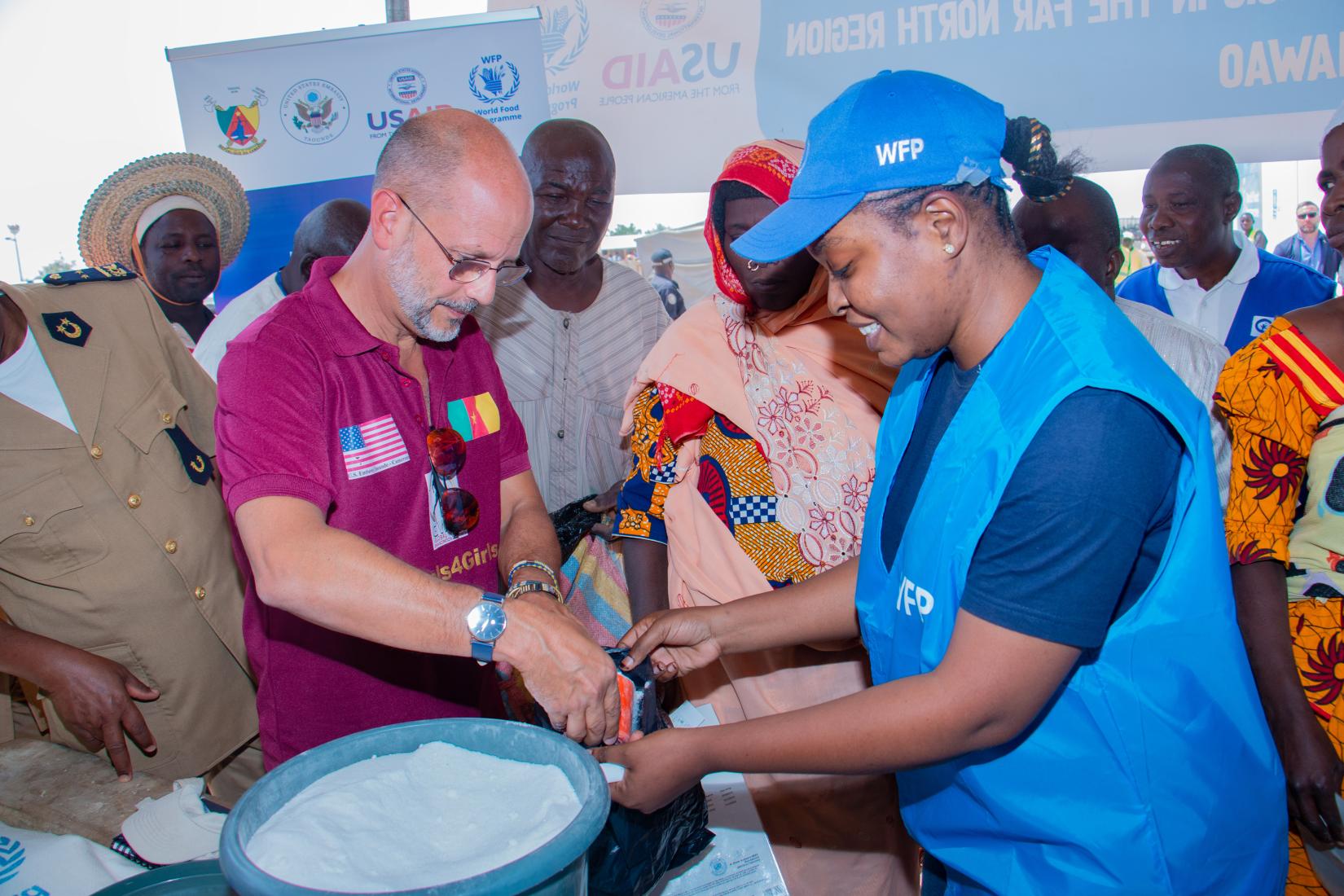US Ambassador Compliments WFP efforts Improving Food Security in Cameroon
WFP is supporting about 76,000 Nigerian refugees with rice, sorghum, beans, split peas, oil and salt to reduce their vulnerability to food security shocks.
The US Ambassador to Cameroon recently visited the Far North region where the United States Agency for International Development, through its Bureau for Humanitarian Assistance, is a key partner in funding WFP’s outreach to communities affected by food security crises. His first stop was at the Minawao camp, where WFP is supporting about 76,000 Nigerian refugees with rice, sorghum, beans, split peas, oil and salt to reduce their vulnerability to food security shocks.
The Ambassador, Christopher John Lamora said he was happy that the partnership between USAID and WFP keeps “the refugees and men, women and children in displaced communities healthy, safe and fed.” He equally expressed appreciation for the work WFP is doing for internally displaced communities in Zamai and Yagoua where WFP provides both in-kind and cash assistance to beneficiaries.

The Cash assistance programme in Zamai is also tailored to strengthen the local markets. Cash transfers are done through vouchers where the benefitting party receives a code to their mobile phone corresponding to an agreed amount based on family size and need so they can purchase their basic needs and food items at local retail shops contracted by WFP.
Garga Mahnda has been working as a WFP contracted retailer for almost three years now. He says he did not envision such growth in his business or even community acceptance, when he first moved to Zamai to start a provision store. Now, there is a queue in front of his ‘petite boutique’ waiting to be served every time they receive their food transfer vouchers. Mahnda’s boutique is well stocked and together with other retailers, they have hired a local butchery to supply meat products on site. “Every person in the community knows me now and children chant playfully with me when I walk by,” Mahnda says.
Cameroon is often referred to as Africa in miniature. If that is true, then the Far North region is Cameroon in miniature. At least when it comes to food security threats. The Climate crisis, conflicts and displacements, the effects of the COVID-19 crisis as well as rising costs, partly due to the Russian aggression on Ukraine are all captured in WFP’s operations in this region.
Conflict in the Lake Chad Basin has led to an influx of more than 124,000 Nigerian refugees in Cameroon, 96 percent of whom are in the Far North region of Cameroon. Incursions by Non State Armed Groups and clashes over natural resources in the Far North Region have also led to internal displacements. Furthermore, floods between August and November 2022 affected over 313,000 people in the region, displacing 70,000 from their homes and destroying about 48,000 hectares of cultivated farmlands.
The Ambassador also visited a similar operation in Yagoua, where some families and communities affected by floods that hit between August and November last year have been resettled. He interacted with families as well as administrative and traditional authorities, before presenting USAID support that in this case, was channeled through the World Food Programme and Red Cross.
The US Government is WFP’s largest donor. It has already contributed up to USD 19 million (11 Billion of CFA francs) to support food security and WFP operations in Cameroon in 2023.








